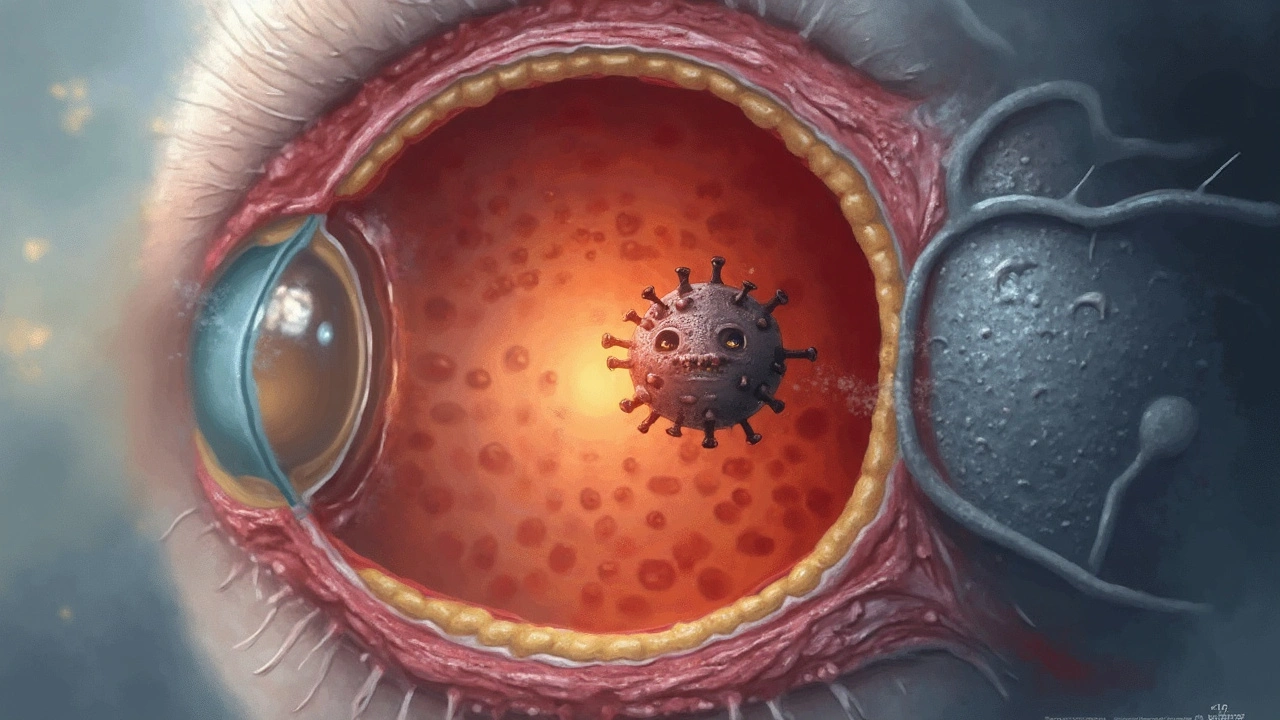Ocular Herpes: What It Is, How to Spot It & How to Treat It
If you’ve ever had a cold sore around your mouth, the idea of an eye infection caused by the same virus can feel scary. Ocular herpes is simply the herpes simplex virus (usually HSV‑1) that shows up in the eye. It can affect the eyelid, the surface of the eye, or even deeper layers like the cornea.
Most people first notice redness, a gritty feeling, or light sensitivity. Some describe a small blister on the eyelid that looks like a tiny pimple. If you ignore these signs, the virus can damage the cornea and lead to blurry vision. That’s why early detection matters.
Common Symptoms You Should Watch For
The symptoms can vary, but here are the ones most people report:
- Red or swollen eyelid
- Tender bumps or blisters on the eyelid margin
- Sensation of something in the eye (foreign‑body feeling)
- Watery or discharge‑filled eyes
- Increased sensitivity to light (photophobia) and blurred vision
If you get any of these, especially after a recent cold sore outbreak, it’s worth calling your eye doctor. A quick exam can confirm whether HSV is the culprit.
Treatment Options That Actually Work
Doctors usually prescribe antiviral eye drops like trifluridine or ointments such as acyclovir. In more severe cases, oral antivirals (valacyclovir or famciclovir) are added to speed up healing and prevent scarring.
Don’t stop treatment just because symptoms improve; finish the full course. Stopping early can let the virus linger and cause another flare‑up later on. For pain, artificial tears or mild steroid drops might be used under close supervision.
Most people start feeling better within a week, but corneal involvement can take longer. Follow‑up visits are key to make sure no lasting damage occurs.
Beyond medication, there are practical steps you can take at home:
- Avoid touching your eyes with unwashed hands
- Use a clean washcloth for any eye discharge
- Skip contact lenses until the infection clears
- Keep your bedroom pillowcases and towels fresh—change them daily during an outbreak
These habits cut down on re‑exposure to the virus and help your eyes heal faster.
If you’ve had ocular herpes before, talk to your doctor about suppressive therapy. A low‑dose oral antiviral taken daily can keep flare‑ups at bay, especially if you’re prone to frequent outbreaks or have a weakened immune system.
Remember, ocular herpes isn’t life‑threatening for most people, but it can affect vision if left unchecked. Knowing the signs, seeking prompt care, and sticking to treatment are the best ways to protect your sight.
Loteprednol is a topical steroid often used to manage eye inflammation. When dealing with ocular herpes, it's crucial to understand how it interacts with the virus. This article delves into the dual nature of loteprednol, highlighting both its benefits and potential risks. Understanding the nuances can help patients and caregivers make informed decisions about its use in managing ocular herpes. The insights here aim to enhance awareness and minimize complications.


 Medications
Medications